Report Card #MeToo
At ASBA’s School Law Seminar, attorney Emily Runyon describes what schools should do when an adult staff member makes a sexual harassment charge. (Hint: Don’t ignore it.)


At ASBA’s School Law Seminar, attorney Emily Runyon describes what schools should do when an adult staff member makes a sexual harassment charge. (Hint: Don’t ignore it.)

I am honored to be serving as ASBA’s president in 2018. As I enter my term, I commend my fellow board members for all your hard work and commitment to ensure all our students succeed. I also encourage you to participate in ASBA training and conferences so you can become an even better advocate for our children.
One resource document, the School Board Member’s Code of Ethics, developed by ASBA staff and available on ASBA’s website (arsba.org), serves as a reminder of our duties and responsibilities to our students, schools, and communities. Following is the Code of Ethics.
As a member of the board, I shall promote the best interests of the school district as a whole, and, to that end, I shall adhere to the following educational and ethical standards:
• Bring about desired changes through legal and ethical procedures, upholding and enforcing all laws, State Board of Education rules, and court orders pertaining to schools.
• Make decisions in terms of the educational welfare of all children in the district, regardless of ability, race, creed, sex, or social standing.
• Recognize that decisions must be made by the board as a whole, make no personal promise and not take private action that may compromise the board.

by Debbie Ugbade ASBA President
• Focus board action on policymaking, goal setting, planning, and evaluation. Insist on regular and impartial evaluation of all staff.
• Support and protect school personnel in the proper performance of their duties.
• Vote to appoint the best qualified personnel in the proper performance of their duties.
• Hold confidential all matters pertaining to schools that, if disclosed, may needlessly injure individuals or the schools. Respect the confidentiality of information that is privileged under applicable law.
• Attend all regularly scheduled board meetings insofar as possible and become informed concerning the issues to be considered at those meetings.
• Delegate authority for the administration of the school to the superintendent.
• Endeavor to make policy decisions only after full discussion at publicly held board meetings. Render all decisions based on the available facts and refuse to surrender that judgment to individuals or special groups.
• Encourage the free expression of opinion by all board members and seek systematic communications between the board and students, staff, and all elements of the community.
• Communicate to board members and the superintendent at appropriate times expressions of public reaction to board policies and school programs.
• Inform myself about current educational issues by individual study and through participation in programs providing needed information, such as those sponsored by my state and national school boards associations.
• Refrain from using my board position for personal or partisan gain.
• Make certain the board remains responsive to the community.
• Remember always that my first and greatest concern must be the educational welfare and academic performance of all the students attending the public schools.
Dr. Martin Luther King Jr. said, ”If you can’t fly, run. If you can’t run, walk. If you can’t walk, crawl. But by all means, keep moving.”
We have to keep moving for our children.







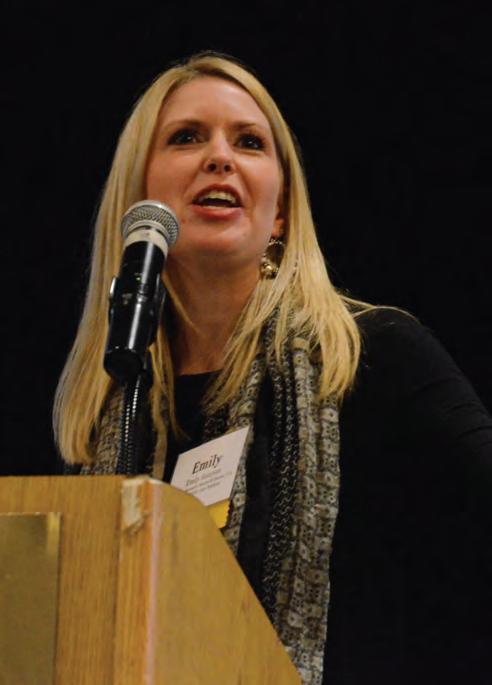
At the ASBA School Law Seminar, attorney Emily Runyon told attendees that each sexual harassment accusation is unique and deserves its own unique response. Regardless, schools must take accusations seriously and be able to prove they took action.
As the economy advances past the information age and moves into an age led by nano- and biotechnology, schools must become future-focused, more rigorous and more relevant, said Dr. Bill Daggett at ASBA’s Annual Conference.
After studying more than 340 school boards in 45 states, Dr. David Lee says poorly performing school districts are led by poorly behaving boards. Governor:
At the ASBA Annual Conference, Gov. Asa Hutchinson encouraged schools to train computer teachers. Legislators offered their thoughts on education issues. And attendees had their picks between four early bird workshops and 34 breakout sessions.
Commissioner Key: Measures developed by the state under the Every Student Succeeds Act will consider many factors. Also, the 100 percent proficiency goal under No Child Left Behind is gone.
Clint Hull, a longtime Pottsville School Board member, received the Dr. Daniel L. Pilkinton Award during ASBA’s 2017 Annual Conference in December. Since 1993, ASBA has honored outstanding individuals who have made significant contributions to public education with this prestigious award.
Hull was nominated by Pottsville Superintendent Larry Dugger and other school board members. According to the nomination team, Hull is a community leader and a stabilizing force for the district. The Pottsville School District celebrates 100 years of education this school year, and Hull has served as a board member for 37 of those years.
During his tenure, the district’s enrollment has increased from 400 students to more than 1,700, and as a result,





DR. DAN AWARD. Hull is congratulated by Sandra Porter, ASBA past president.

multiple buildings have been constructed to accommodate student growth and enrich extracurricular culture. Hull was also a major influence in the district’s decision to supply every student with an electronic device.
Hull has served numerous terms as Pottsville School Board president and has served as president of ASBA. He has



July 22-24 Southern Region Leadership Conference Biloxi, Mississippi
served on numerous state and national committees and participates in the New Board Member Institute annually.







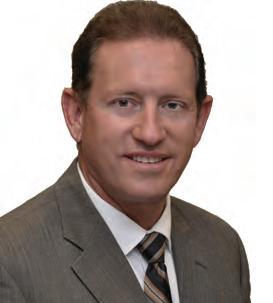
by Dr. Tony Prothro
Anyone who has attended an ASBA presentation concerning the hiring of a superintendent will have heard the statement, “The employment of the superintendent is probably the most important decision a board will make.”
Although not an absolute, the statement in many cases rings true. The superintendent, as CEO, carries out the policies and strategic plan put in place by the local school board. The superintendent is responsible for the district’s finances, facilities and personnel. Another major responsibility is students’ academic achievement. Although the superintendent may not be the individual directly in contact with each major responsibility, he or she is still ultimately responsible to ensure the essential protocols and accountability mechanisms are in place.
None of the above statements are meant to lessen the importance of other personnel. We all know that the most important aspect of instruction is the conveyance of learning between a teacher and a student. We also know that the building principal plays a crucial role in school improvement and accountability. However, a school district’s staff must have effective leadership in the superintendent’s position to support and sustain their roles in the educational process. A superintendent can make or break a district in areas such as finance, accountability, communications and other facets of leadership.
So what are the aspects of a board decision when employing a superintendent? Hopefully, board members needing to employ a superintendent have attended one of our workshops or
breakout sessions on the search process. These sessions teach boards to identify the qualities and characteristics of a potential superintendent that provide the highest probability of district success. These characteristics will change from district to district and will change based upon the district’s current reality. For instance, a district that is undergoing major building projects will probably desire a superintendent who has experience or knowledge in facility construction. Likewise, a district who is experiencing financial pains might want an applicant to have a background in strong financial management.
I have heard many board members speak of their struggle to recruit quality applicants. Some districts are fortunate enough to have had the time and ability to prepare potential candidates from within the district. Others have had no applicants from within the district. I cannot stress enough the importance of thoroughly conducting reference checks prior to making an offer. It is crucial that a school board utilize the resources necessary to conduct very thorough reference checks for potential applicants. This can either be done through the employment of a search firm or by board members dedicating personal time to this crucial endeavor.
The season of movement within the superintendent ranks is upon us. A domino effect is easily visible as superintendents move from one district to another or as new superintendents are employed. Do your due diligence as a board member in this important board responsibility. The welfare of your district depends upon your decision.
The Journal of The arkansas school Boards associaTion
Vol. 11, Number 1 March 2018
P.O. Box 165460 / Little Rock, AR 72216
Telephone: 501-372-1415 / 800-482-1212
Fax: 501-375-2454
E-mail: arsba@arsba.org / www.arsba.org
President: Debbie Ugbade, Hot Springs
President-elect: Neal Pendergrass, Mtn. Home
Vice President: Randy Goodnight, Greenbrier
Sec.-Treasurer: Rosa Bowman, Ashdown
Past President: Sandra Porter, Bryant
Region 1: Jerry Coyle, Prairie Grove
Region 2: Randy Rogers, Lead Hill
Region 3: Dr. Tad Margolis, Valley View
Region 4: Kyle Cannon, Mena
Region 5: Allan George, Russellville
Region 6: Keith Baker, Riverview
Region 7: D’James Rogers, West Memphis
Region 8: André Acklin, Conway
Region 9: Joey Astin, Forrest City
Region 10: Deborah Smith, Malvern
Region 11:Jeff Lisenbey, Sheridan
Region 12: Willie Buck, Hope
Region 13: Mike Waters, Magnolia
Region 14: Katie Daniel, McGehee
Staff
Executive Director: Dr. Tony Prothro
Communications Director: Jennifer George
Member Services Director: Abby Cress
Administrative Assistant: Angela Ellis
Board Development Director: Dr. Anne Butcher
Advocacy Director: Boyce Watkins
Staff Attorney: Kristen Garner
Policy Director: Lucas Harder
TIPS-TAPS Project Manager: Mickey McFatridge
Finance Director: Deborah Newell
Administrative Assistant: Tina Cates
Bookkeeper: Kathy Ivy
Risk Management Program & Workers’ Comp. Program:
Shannon Moore, Director
Krista Glover
Amanda Blair
Dwayne McAnally
Ashley Samuels
Jennifer Shook
Misty Thompson
Melody Tipton
Tiffany Malone
LaVerne Witherspoon
General Counsel: Jay Bequette
TO CONTACT THE MAGAZINE
Please contact Steve Brawner, Editor
501.794.2012 brawnersteve@mac.com
Report Card is published quarterly by the Arkansas School Boards Association. Copyright 2018 by the Arkansas School Boards Association and Steve Brawner Communications. All rights reserved.
ASBA Executive Director Dr. Tony Prothro said, “Clint Hull is a veteran board member who encompasses a wealth of experience and knowledge. However, the characteristic of Clint Hull that shines above all others is his unwavering integrity.”
The award is meant to be a surprise for the recipient. After receiving it, Hull told conference attendees, “The first superintendent I was ever involved with said there’s a test that you need to give yourself for every decision you make: Is that decision good for kids?”
Hull is the third person associated with the Pottsville district to receive the award. The others were the late George Jones, a longtime instructor who donated 40 acres for the high school, and the late Jerry Akin, a board member.
“I’ve never expected it even though I’ve been involved a lot of years. … People made a lot greater contribution than I have,” Hull told Report Card.
April 2 is the deadline to apply for the ASBA Educational Foundation’s 2018 Scholarship Award Program.
For an application form, go to ASBA’s website, www.arsba.org.
The awards are available to school board members’ children and legal wards who are attending two-year and four-year schools in Arkansas. The awards are based on academic record, community and extracurricular involvement, and leadership potential.
The $650 ASBA Freshman Scholarship is awarded to four high school seniors, one from each of the state’s four congressional districts.
The $650 J.K. Williams Memorial Scholarship, named in honor of former ASBA Executive Director J.K. Wil-
liams, is awarded to a student pursuing an advanced degree in the field of education.

How do you protect your employees and your district from sexual harassment? Be prepared, and respond fast
By Steve Brawner Editor
A music teacher, Matt, has a crush on a math teacher, Molly. While he acts appropriately at work, during his off hours he pesters her with suggestive Facebook messages that she ignores. Finally, he sends her a picture of his genitals.
What should the school district do?
A principal, Pete, and a science teacher, Samantha, have an affair. He gives her a positive evaluation, and then she ends the relationship. Then one of her fellow teachers files a complaint because of that evaluation.
What about then?
Those were some of the questions posed by attorney Emily Runyon at ASBA’s School Law Seminar Jan. 22. Her topic was “#MeToo, Adult Victims of Sexual Misconduct and Legal Liability.” The “#MeToo” refers to a Twitter hashtag used by victims of sexual assault and harassment. Runyon conducts independent investigations in potential harassment cases involving school personnel.
Adult sexual harassment issues are governed by Title VII of the Civil Rights Act of 1964. It made it illegal for employers to discriminate based on sex at the same time it made such behavior illegal based on race, color, national origin, and religion. In 1986, the Supreme Court ruled that sexual harassment is a form of sex discrimination. Examples are sharing or displaying pornography or a sexy poster at work; sending suggestive emails; sharing lewd jokes or sexual anecdotes; making inappropriate gestures; staring; whistling; making sexual comments about appearance or clothing; inappropriate touching; or asking questions about a person’s lifestyle choices. The action does not have to lead to economic injury to be considered

harassment. The Supreme Court ruled in 1998 that harassment can occur between members of the same sex.
Inappropriate sexual conduct between adult employees and students is governed by another section of the law, Title IX, and was not a topic of the seminar.
When are employers liable?
Employers are liable when they knew or should have known about the conduct. If a supervisor harasses an employee, the employer is “vicariously liable” – in other words, it’s as if they did it themselves.
Runyon said there are two main types of sexual harassment. One is “quid pro quo,” or when an authority figure offers or hints that a subordinate will receive a benefit in return for a sexual act. The other is when a “hostile work environment” is created. That type is more complicated. The employee must prove the attention was unwelcome, based on sex, severe enough to alter the work condition, and that the employer knew or should have known it was happening. Accusers are supposed to be protected from retaliation at work as long as their complaint was made in good faith.
Victims of sexual harassment must file a claim with the Equal Employment Opportunity Commission (EEOC) before bringing a suit in court.
Runyon cautioned against downplaying the accusations. Telling lewd jokes or sharing anecdotes might not seem so bad. However, “If this is something
that is happening repetitively in your common area, these kinds of things that don’t really seem like that big of a deal start to create an environment in which you are putting yourself into a position of creating some civil liability,” she said.
As for instances of inappropriate touching, “These are never OK. In a world of ‘#MeToo,’ you do not go there and it doesn’t matter if you have had a friendly environment or a friendly relationship, and your employees need to know this,” she said.
Courts have ruled that Title VII’s purpose is not to serve as a “general civility code,” Runyon said. Sexual harassment is not an isolated instance of minor misconduct. Instead, the plaintiff must demonstrate “that the workplace is permeated with discriminatory intimidation, ridicule, and insult.” Courts look at the totality of the circumstances, asking if a reasonable person would consider the actions to be harassment, and whether the plaintiff actually felt harassed or is inventing the charge to harm the defendant. In one case, Runyon determined the accuser did perceive harassment had occurred, but Runyon couldn’t see where the accused had done anything wrong. Both were unmarried; he had asked her to dinner; there had been some appropriate text messages sent back and forth. She eventually learned the accuser had been sexually assaulted previously and had trust issues with men. While
her past didn’t at all disqualify her from making a claim, in this particular case it was without merit.
What should schools and school boards do? It starts with being prepared before any allegations arise by having harassment policies and complaint procedures in place. Most districts with which she has worked do have those, Runyon said, and ASBA has a model policy that school districts can use. Kristen Garner, ASBA staff attorney, said in an interview that board members should ensure those policies exist and include a current contact person in case there’s an allegation. School boards should discuss with the administration what steps would be taken if an allegation arises.
When faced with a sexual harassment claim, school districts should act, Runyon said. They can avoid liability if they can show they immediately investigated and then took prompt and appropriate action. Document everything.
School boards do not have a role in the investigation. As in other cases, their role kicks in during the appeals process after the administration has disciplined the accused. Occasionally, guilty employees resign so they don’t have to tell potential employers they were recommended for termination or nonrenewal, so no hearing occurs, Garner said.
School board members’ other role is to inform the superintendent if they hear

from someone in the community that sexual harassment may have occurred. If it leads to an investigation followed by an appeal to the school board, the board member cannot participate because of his or her involvement in the case.
“If you see something, say something,” Garner said. “If you hear something, say something. But understand that if you’re the whistleblower, you’re going to be conflicted out of participating in the hearing.”
What if the school board member hears that the superintendent may be guilty of harassment? In that case, seek immediate legal advice from your school attorney, Garner said.
Each sexual harassment case is unique and demands its own response. Afterwards, Runyon told Report Card that Matt the math teacher doesn’t necessarily have to be fired, but the school district must immediately investigate. By clearly taking action, the district can protect itself from charges that it ignored the problem.
Principal Pete’s relationship with Samantha is a potential quid pro quo situation because of the evaluation. She hasn’t filed a complaint, so she has no Title VII claim. Meanwhile, the teacher who did complain will have to show that she suffered. Still, the district can’t ignore the relationship because the complaining teacher could claim an
environment has been created where sexual favors lead to more favorable evaluations.
“While civil liability under Title VII is not a reality for a district until an EEOC claim is filed, I think you want to treat every situation like somebody’s about to go file an EEOC claim,” Runyon said.
Runyon described two other hypothetical scenarios. In one, the superintendent made jokes about a principal whom he suspects is gay. Though not necessarily a fireable offense, this is clearly serious. It could be creating a hostile workplace, and the employer –the district – could be vicariously liable because of the superintendent’s supervisory role. The district must at least take corrective action.
Another one is a little less clear. Eric, a popular English teacher known for his sense of humor, tells a crude joke in the teacher’s lounge about a female named “Sunny” in the presence of a teacher by that name. Sunny was offended and reported the joke. In that case, the district should investigate. It should try to determine if Eric has had previous harassing communications with Sunny. He doesn’t necessarily need to be fired, but he perhaps should be educated.
“Instances such as these are often perceived as not a big deal but, when ignored, are what turn into a big deal at some point and get you in trouble,” Runyon said.
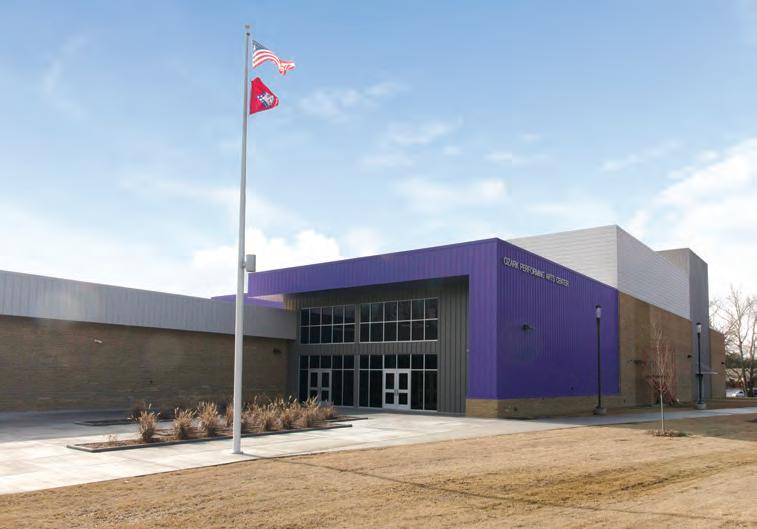

asks, ‘Are you preparing kids for their future or your past?’
By Steve Brawner Editor Conference keynoter
As the economy advances past the information age and moves into an age led by nano- and biotechnology, schools must become future-focused, more rigorous and more relevant.
That was the message presented by Dr. Bill Daggett, chairman of the International Center for Leadership in Education, during a keynote address at the ASBA Annual Conference Dec. 7. He also spoke in a breakout session.
Daggett said schools traditionally have focused on rigor and relevance. He used an illustration featuring four squares that together formed a larger square. The bottom left square, Box A, represented basic instruction, while Box B to its right represented a progressively more relevant career education. Box C was above Box A and represented a progressively more rigorous college track. Box D, in the top right corner above Box B and to the right of Box C, represented a path that was both progressively more rigorous and more relevant.
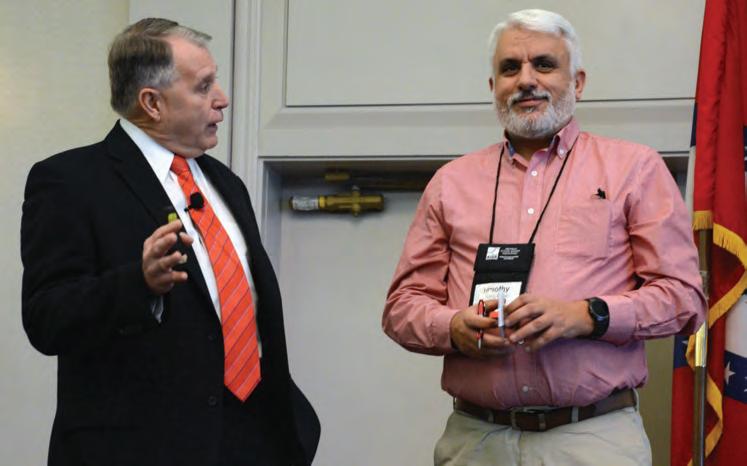
Of the four, only Box D can give students the preparation they’ll need, he said. A rigorous college track merely provides information they can find on Google. An education focused on relevance prepares them for jobs that are being automated out of the economy.
“Though our kids need D, we are regulated, certified, tenured and contracted by A and C,” he said. “We are regulated, certified, tenured and contracted for the needs of the 20th century, and we’re putting every child at risk.”
8700 Remount Rd. North Little Rock, AR 72118
Phone: (501) 835-3111 Fax: (501) 992-1008 www.adem.arkansas.gov


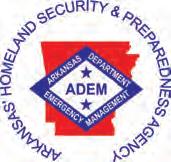

Daggett said schools are focused on cognitive skills instead of the more important noncognitive ones. Daggett said a study by the World Economic Forum said students must develop 10 critical skills to ensure they are career ready in 2020: complex problem solving, critical thinking, creativity, people management, coordinating with others, emotional intelligence, active listening, service orientation, negotiating, and cognitive flexibility. Deficiencies in such noncognitive skills are the reason people flunk out of college or lose their job, Daggett said.
With support from the Bill and Melinda Gates Foundation, Daggett worked with the Council of Chief State School Officers to study the nation’s most rapidly improving schools. Another study with the American Association of School Administrators looked at the nation’s most innovative practices.
Daggett said rapidly improving schools focus first on noncognitive skills, which lead to both academic success and emotional well-being, and they pay less attention to testing. By starting with building relationships, they can then move to relevance and then rigor.
His research has found that for schools to make needed changes, they must change their culture, because “Culture trumps strategy.” Rapidly improving schools consider why, what, and how they need to change.
“What we found is these schools were more focused on their students than the adults,” he said. “Board members, how much time do you spend talking about adults and their interests and their needs versus the needs of the students? These schools are deeply committed to say, ‘Let’s put a stake in the ground five years out, and let’s find out what the future of these kids looks like, and let’s build back from the future, not forward from the past.’”
Daggett said teaching staffs can be divided into thirds: those who embrace change, the realists, and the pessimists who say, “Over my dead body will you do anything to mess up my 2005 laminated lesson plans.” He said the pessimists will influence the middle third. Because “revolutionists get killed,” school districts must therefore “Make change evolutionary, not revolutionary.”
Daggett said the economy is experiencing its fourth industrial revolution. The first was animal to steam power, followed by steam to electrical/mechanical power. The third was the information age. Now it is moving into an age led by biotech, nanotech and automation.
In the second industrial revolution, the United States created the world’s best factories, and employees became assembly line specialists governed by time and specialization. Public schools adopted that model. To illustrate, Daggett invited to the stage Tim Barnes, a Clinton School Board member who previously had taught fifth-graders. Daggett pointed out that, as a teacher, Barnes was expected to bring all of his 26 students to the same point for a test despite their varied interests, skill levels and personal issues at home.
“That is lunacy,” Daggett said. “It’s not going to happen. Why do we do it? Because we’re still in the second
Continued on next page



What we found is these schools were more focused on their students than the adults. Board members, how much time do you spend talking about adults and their interests and their needs versus the needs of the students?
– Dr. Bill Daggett “ ”
industrial revolution. Everybody’s a specialist. Everything governed by time. The high performing schools came to the conclusion that didn’t work. Where are you?”
The third industrial revolution is the information age. Today, work is done through use of technology resources and collaboration, but schools do not let students use their digital devices to take state tests because they believe that would be cheating. However, once they leave school, students will be expected to use that technology responsibly.
“Our schools have become museums,” he said. “And you look at all of this incredible change in technology. But you want to have a revolution in one of your schools? Try to change the bus schedule. Change the school calendar by two days. We’ll have four committees to discuss this momentous decision.”
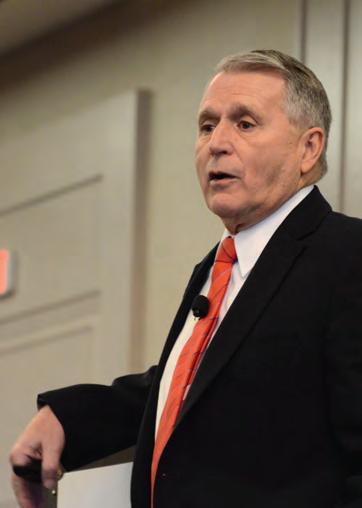
Daggett displayed a list of 2017’s five leading companies: Apple, Google, Microsoft, Amazon and Facebook. Of those, only Microsoft was in the top five in 2007, and by 2027 he predicted a new set of biotech and nanotech companies will occupy those spots. Materials are being developed that are stronger than steel but have the texture of gelatin. Tiny microprocessors will be embedded in everything, leading to wondrous advances such as chips that can travel permanently throughout the human
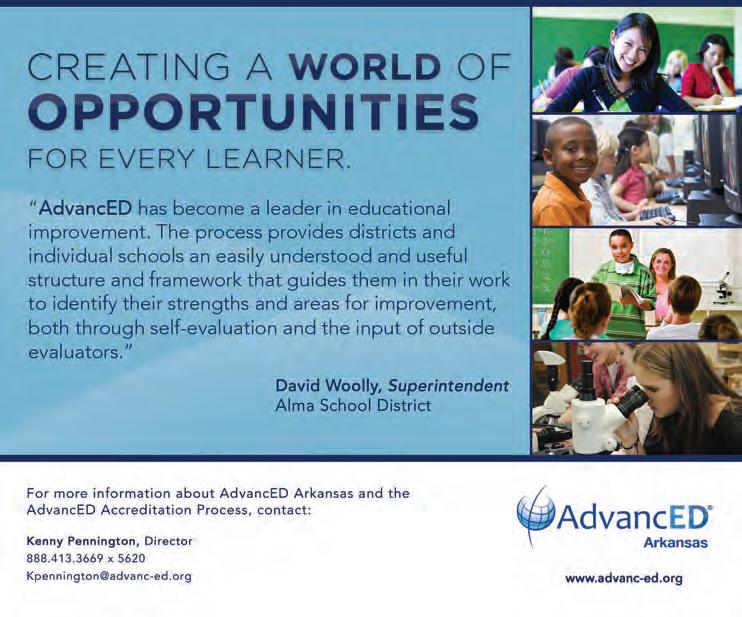
body and identify threats. Some in fact, could remove arterial blockages and zap cancer cells. Robots can lay bricks faster and more efficiently than humans can, while a 3D printer can build a concrete house in days and the Amazon Go store doesn’t need registers or cashiers.
These technologies will transform the economy, leading to incredible advances but also displacing millions of workers whose jobs can be performed by automation or by algorithms. Those include brick masons but also accountants and attorneys. A two-tiered economy is developing where the top 25-33 percent are succeeding, served by a growing and poorly paid service sector. The middlelevel jobs in between are being automated out of the workplace.
Unfortunately, those middle-level jobs are the ones for which schools prepare students. That’s because schools are still stuck in the second industrial revolution, he said.
The new economy will be led by small companies because large organizations react too slowly to change. Students will work in entrepreneurial environments, but schools aren’t preparing students to do so.
“Are you preparing kids for their future or your past?” he asked.
Daggett said schools are oriented toward channeling students into college where they can earn a four-year degree, but many good jobs don’t require one. The fastest growing majors at twoyear schools are technical – including computer programmers and diagnostic medical specialists – and offer starting salaries of between $42,000 and $50,000. In contrast, too many students at four-year schools are choosing majors that don’t fit the job market. The fastest growing majors are for nontechnical jobs like recreational workers and athletic trainers, with starting salaries between $30,000 to $36,000. Meanwhile, the most in-demand jobs coming out of four-year schools offer much better starting salaries. A petroleum engineer, for example, can earn more than $100,000 after graduating.
He said the internet is becoming increasingly anticipatory, with artificial intelligence and deep data mining enabling highly personalized experiences. The web knows exactly what sites users have visited and for how long, and what purchases they have made. Daggett warned school board members that their online activities are creating digital histories that will forever follow them and will be accessible to the public. He foresees school board members’ embarrassing histories being publicized by a disgruntled school employee, parent or defeated opponent.
“Did you ever hear of social media? In the blink of an eye, it’s going to go across your school district,” he said.
In his breakout session, Daggett described some of the characteristics of the most rapidly improving schools. They teach reading, writing and math in all classes. In math, they focus on help-
ing students master middle school skills, such as equations and percentages, before moving them to algebra, geometry and calculus, which only 5 percent of the workforce uses.
Daggett presented a survey of 23,000 teachers and their 550,000 students grades 4-12 that showed very different perspectives. Ninety-two percent of teachers said their students could apply what they were teaching to their everyday life; only 58 percent of students agreed. Eighty-eight percent of teachers said students do hands-on activities; only 45 percent of students agreed they do a lot of them. Eighty-four percent of teachers said they make learning exciting; only 40 percent of students agreed, Daggett said.
Daggett said fundamental shifts are occurring in how teaching occurs. Major publications are shifting from textbooks to digital. More education is occurring in augmented reality, where virtual reality is placed on top of actual reality. Gami-
fication is proving to be an effective tool because it allows students to compete with themselves based on personalized instruction, whereas schools are still using a proficiency model based on one standard. He said the most successful schools are looping their teachers, meaning teachers follow their students from one grade to the next, enabling them to build relationships. He said teachers should be coaches and facilitators.
Daggett said his organization will provide administrators from successful schools to work with school principals. He encouraged breakout attendees to allow teams to visit model schools.
“I can’t impress upon you enough: The teachers and the administrators in the nation’s most rapidly improving schools are not working harder than your teachers are,” he said. “Your teachers are working harder than the teachers in the most rapidly improving schools. It’s not about working harder. It’s about working profoundly differently.”



Having a teacher certified in computer science can lead to more students taking the course, Gov. Asa Hutchinson told school board members at the 2017 ASBA Annual Conference.
Hutchinson spoke Dec. 8 at the end of a conference that brought 600 attendees to Little Rock to talk about creating future-focused schools.
The state is offering a $2,000 stipend for teachers who become licensed and begin teaching the program at their school. Hutchinson pointed to a district where one student was enrolled when the class was offered online through Virtual Arkansas. When a teacher was offered a job after promising to learn computer science, the number of students increased from 1 to 30 in one year. The following year, 60 students were enrolled.
“So one school goes from one student to 30 students to 60 students, and what made the difference? A teacher,” he said.
The governor said more than 6,100 Arkansas students are taking computer science courses, compared to less than 1,000
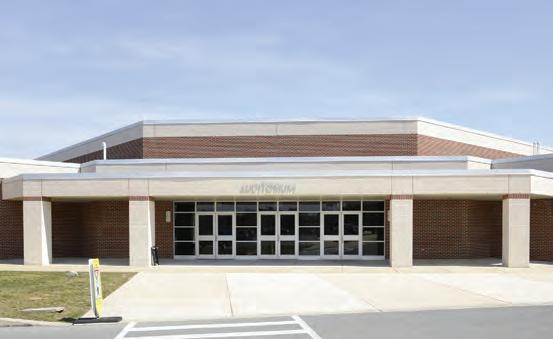

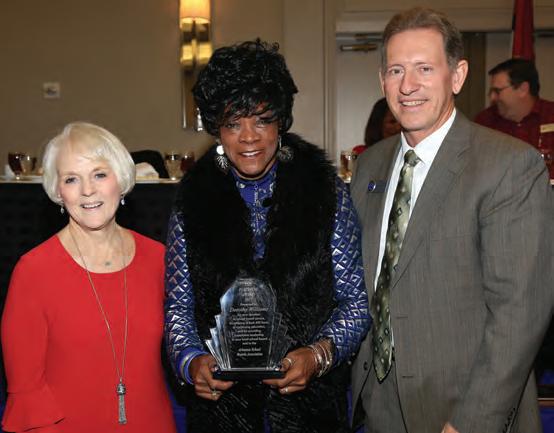
PLATINUM AWARDS.
Receiving the Platinum Awards for 400 hours of boardsmanship credit were Sandra Porter of Bryant, left, and Dorothy Williams of North Little Rock. With them is ASBA President Dr. Tony Prothro. Photo by LifeTouch
before his initiative began. This year’s number is 12 percent higher than last year’s. Thirty-eight percent of those are minority students, but only 26 percent are female. To address that imbalance, the governor touted the Women’s Foundation of Arkansas’ Girls of Promise program, which points girls toward science- and math-based careers. Susan Heil, a Fayetteville School Board member with a background at IBM, said the state must capture girls at younger ages. Hutchinson said a curriculum for grades K-8 will be integrated into the program.
Hutchinson also said school districts, not the federal government, should decide on transgender bathroom policies.
“Superintendents and counselors and teachers have the compassion and understanding to handle these sensitive areas, and we do not need that mandate from Washington, D.C.,” he said. (It will be handled) with respect, with common sense, talking to parents, and you’re doing that, and your superintendents are doing that, and I am grateful for your leadership on those very difficult areas.”


Earlier that day, a panel featuring Sen. Jane English, RNorth Little Rock, chair of the Senate Education Committee; Rep. James Sturch, R-Batesville, a former teacher and a member of the House Education Committee, and Sen. Joyce Elliott, D-Little Rock, a retired teacher with 30 years of experience, discussing education from a legislative perspective.
Among the topics discussed was whether diverting public funds for private school tuition costs is in the best interest of students. English said she is a “firm believer in parents having the opportunity to decide what kind of education they want for their children.” Sturch warned of unintended consequences to small rural areas and said that removing money from public schools to help five children could hurt 500. However, he supported a bill by English to give tax deductions for private school and homeschooled students. Elliott said using public funds for private schools is bad policy because the state has a responsibility to educate all children.
Continued on page
If school board members want to improve their districts, they should start with themselves.
That was one of the messages offered by Dr. David Lee, assistant professor of educational administration at the University of Southern Mississippi, in a workshop titled “Boards in the Crosshairs.”
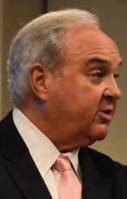
After studying more than 340 school boards in 45 states, Lee says poorly performing school districts are led by poorly behaving boards.
Lee said school boards are often driven by “three Ps”: politics, personalities and power struggles. Board members must have a clear vision for their district and must believe their
schools can make the changes they are advocating.
Lee said boards determine a district’s success because they hire superintendents.
“The board’s number one responsibility is to find a leader. A great one,” he said. “That’s what you’re looking for. And when you find a thoroughbred, turn them loose because they can make wonderful things happen to you.”
On the other hand, without good administrators, the district will suffer. “People don’t leave systems. They leave bad bosses,” he said. Likewise, superintendents leave because of bad boards.
Lee said districts must build effective staffs one person at a time. They should try to steal other districts’ best people while fending off offers for their best. As districts find one good employee after another, the bad ones will either improve
• School board legal liability insurance
• Employment practices liability insurance
• Outside of Arkansas General Liability coverage
• Unique policies for each district
• Distinctive and identifiable coverage grants
• Modified “defense outside of the limits” provision
• Separate crisis management fund
• Employment law resources through Enquiron
• Online resource website
• Panel defense counsel
• Dedicated claim representative
For a quote comparison or coverage consultation, contact: Bill Birch, CSRM Senior Vice President
Toll-Free: 800-358-7741 | Direct: 501-614-1170 | bill.birch@bxsi.com
or leave. Underperforming employees should be made to feel uncomfortable.
“The greatest form of school improvement is great teaching,” he said. “Any program is merely supplementary, and if intended otherwise, you’ll be sadly disappointed. Great classroom teaching, that’s the only way out of where you are, if you want to get out.”
Change takes time. A state that’s 48th should focus on becoming 47th and then 46th to build momentum.
Districts should never blame poor results on their resources. Good people will come to good school districts.
“Money’s important, but … we found in the research that money is never the reason why the performance wasn’t up to expectations,” he said. “It’s never the dollar. We’ve seen some dirt poor, dirt poor systems make tremendous gains.”

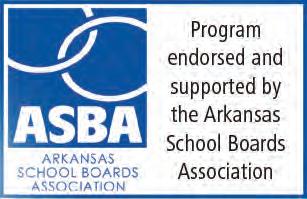
An interview with Dennis Hunt, Executive Vice President and Head of Stephens Public Finance
Leading the Stephens Public Finance team makes Dennis Hunt a frontline defender of the firm’s sterling reputation. It is a reputation Stephens earned from decades of putting its clients’ interests first, nurturing strong relationships, and providing unparalleled expertise.
Hunt shares the keys to his team’s success and what makes Stephens Public Finance such a good partner for Arkansas school districts.
As the leader of Stephens Public Finance, what character traits do you most value in assembling your team?
Most importantly, we look for the integrity and professionalism of the people we recruit. We are very much in a relationship business, and to have strong and lasting relationships, our people must have a high level of integrity and an underlying concern for the firm’s reputation.
Secondly, we look at what areas of expertise they have had in their past, whether that be in public finance, commercial banking, legal, accounting, or city management. Our employees have a variety of backgrounds to accommodate the many needs of our public finance clients.
Is it important for your team members to have a passion for public education in Arkansas?
I think it is a concern of not only the advisors but the firm that we try to provide the best possible education to the children of the state of Arkansas. Some of our advisors have worked in education, and I think you have to have a passion for education in order to be truly successful.
It’s interesting: Stephens is an investment firm, and most of us believe that investing in education is probably the best investment that we can make as a state.
What makes Stephens such a good partner for Arkansas school districts?
It is a combination of our longevity – Stephens has been serving public finance clients in Arkansas since 1933 – and also a high level of integrity. Those school districts know what we are doing and what we are advising will be in their best interest.
And it is about long term relationships. Fortunately, the individuals who worked at Stephens long before most of us today had strong and positive relationships with those school districts, and that continues today. As a result, we have had successful partnerships with Arkansas school districts.
Why does Stephens take a relationship approach to clients rather than a transactional one?
In the state of Arkansas, relationships are critical. It is a relatively small state, and most of our business is developed by word of mouth and the relationships we have developed with superintendents over the years. In Arkansas, if you want to represent clients well, you have to have strong relationships with them. So it is not only part of our firm’s mission statement, but relationships are critically important to our ability to best serve the clients.
How did you come to join Stephens?
I have an undergraduate degree in political science and a Master’s in public administration. I was in city management for about 15 years before joining Stephens in Arkansas. Actually, I was a client of Stephens and worked with many of the bankers who have long since left the firm. Back in 1993, I was approached by Stephens to see if I would be interested in coming to work for them. We decided to open an office in northwest Arkansas, and I was there for 22 years. Then three and a half years ago, I came to Little Rock to lead our Public Finance department.
Having been on the other side of the firmclient relationship, what kind of reputation did you see that Stephens had among school districts and municipalities in Arkansas?
Stellar – that is the reason I came to work for the firm. I always felt that Stephens was doing the right thing for its clients. I was actually in Fort Smith at the time, and Stephens not only


represented the city in terms of its public finance business, but Stephens had a very large presence in the city. I was very familiar with the firm and held Stephens in high regard.
In the public finance world, what developments are unfolding that could be useful for school district decision makers to know about?
There are two issues I think most leaders within school systems should be aware. One, under the recently approved tax reform legislation, school districts lost the ability to do certain types of refunding bond issues that they were permitted to do in the past. So, there may be fewer opportunities for school districts to be able to save money from refunding an outstanding bond issue because of the elimination of what is known as an advance refunding.
Secondly, we are starting to see a trend of rising interest rates, and I would anticipate that interest rates over the next year will continue to move upward. That is obviously going to impact both the cost of capital for school districts as well as have an impact on what are known as current refundings, which districts can still do, and the ability to refund outstanding bond issues for economic savings.
What kind of activity took place in Arkansas’ public debt market over the last year?
Interestingly, many school districts this last year did not enter the debt market. In 2016, there were 136 school bond issues offered in Arkansas, and in 2017 there were 65. The dollar amount was very similar, about $875 million issued in 2016 and $937 million issued in 2017, but the number issued was down dramatically.
So would you look at those as missed opportunities or an impetus for districts to be more aggressive this year?
People are generally hesitant about moving forward on a bond issue to refund outstanding bonds or to generate new money when interest rates are consistently remaining at low levels. But when issuers start to see interest rates increase, they tend to become more anxious. It will be interesting in 2018 to see if because of the increasing interest rate environment issuers try to get in market before interest rates go even higher.
However, there are a number of factors that leaders of school districts are evaluating when deciding to move forward with a bond issue. I would say interest rates and financing costs are probably further down the list in terms of importance. In other words, the financing or interest rates are probably not as important to decision makers as enrollment numbers, safety issues or facility needs as they decide when to move forward.
What kind of information do school district decision makers need to have a good handle on in order to make the best financial decisions?
One of their most important decisions they make is the selection of a municipal advisor to assist them. The advisor provides critically important guidance to decision makers as they implement the financing strategy to address their capital needs. At Stephens, we want to keep the client totally informed, but we don’t want to pester them about the day to day financing activities to the point that the decision makers are not able to focus on their central mission of educating children. It is a delicate balancing act.
But the underlying principle of putting clients’ interest first is consistent throughout. Correct. At Stephens, we have a long history of putting our clients’ interest first. We strive every day to continue that tradition.

Dennis Hunt Executive Vice President and Head of Stephens Public Finance dhunt@stephens.com
501-377-2041
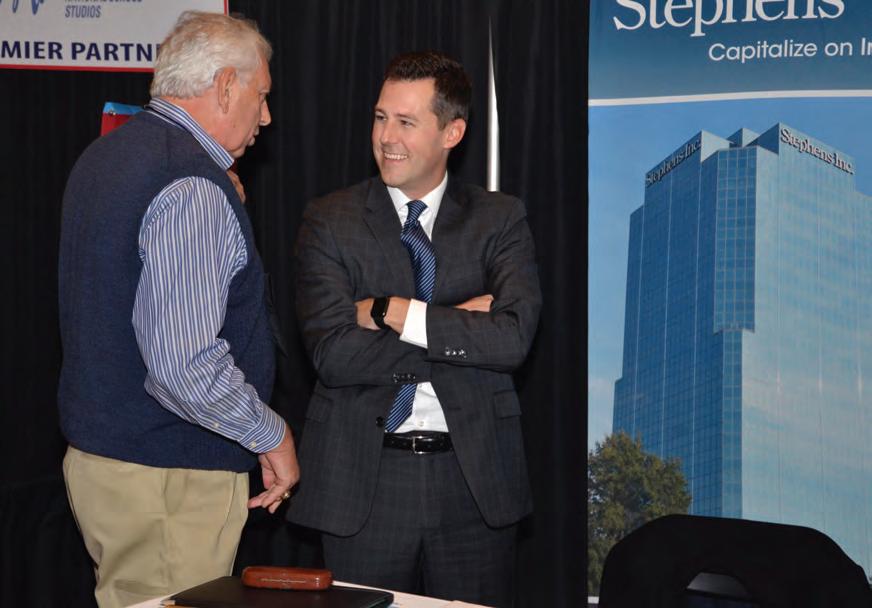
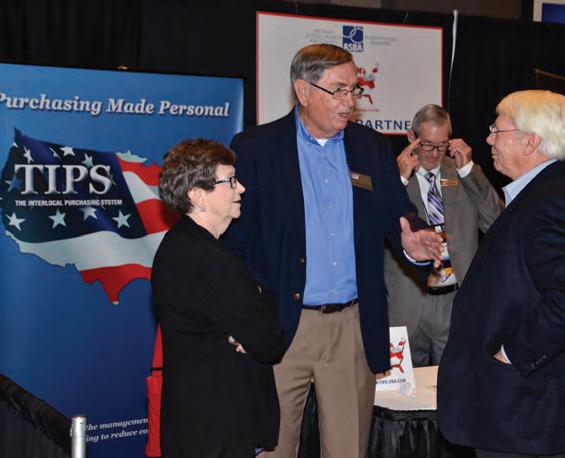

EXHIBITORS. Top left, Jason Holsclaw, a vice president with Stephens Inc., right, talks with Ron Wright with the Bismarck School Board. Middle left, Mickey and Carolyn McFatridge with the The Interlocal Purchasing System talk with Steve Sutton with the Marion School Board. Middle right, Chuck Levermann and Mike Elliott with Homeland Safety Systems talk with Billy Williams, Drew Central superintendent. Bottom left, Connie Straw with the Trammell Piazza law firm talks with John Edwards with the Gravette School Board and Sharla Heltzel, Gravette assistant superintendent. Bottom right, Loddie Green with the Lakeside - Lake Village School Board talks with Frank Riggins, left, and Brad Peterson with Crafton Tull.

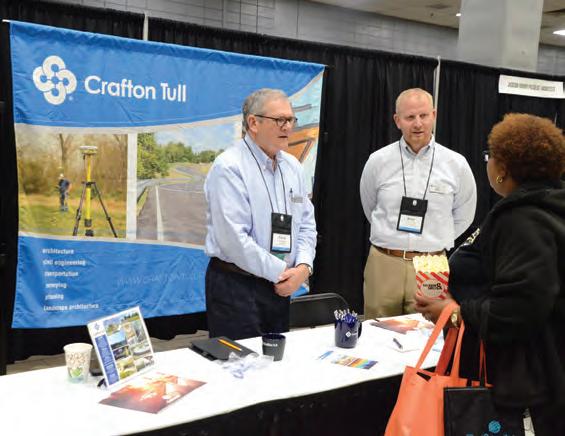
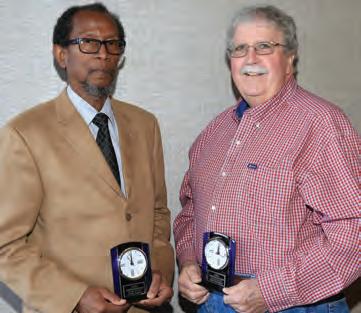
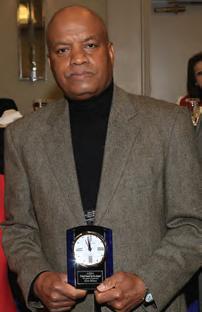
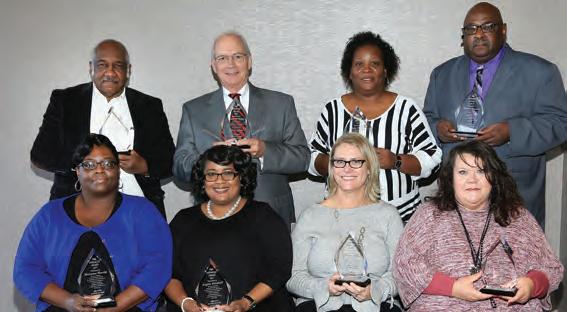
Continued from page 14
Elliott said she’s not against school choice, but using the process to move students into charter schools should be halted until goals and previous experiences are assessed. She said some choice decisions are made based on race.
interest, and I think we’re absolutely not

preparing kids for the future if we even remotely go down this road of resegregating our schools,” she said. “Because what it means is we’re not preparing our kids for their world. We’re preparing them for the world that we grew up in, in so many cases,” she said. “And kids’ education is about so much more than reading and writing and mathematics.”


Legislation passed in 2017 requires school elections to be held in May or November. The three were asked if further restrictions on school board or school millage election dates are needed. All three said no. Asked whether recall votes are needed for elected officials, including school boards, Sturch said
Continued on page 21
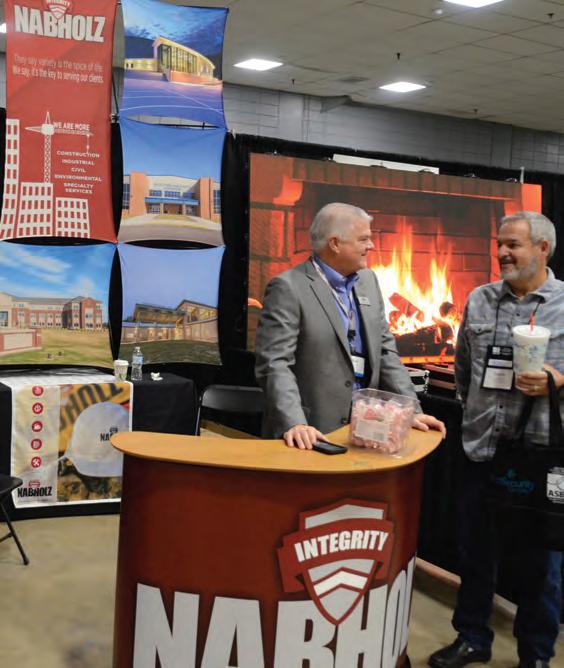
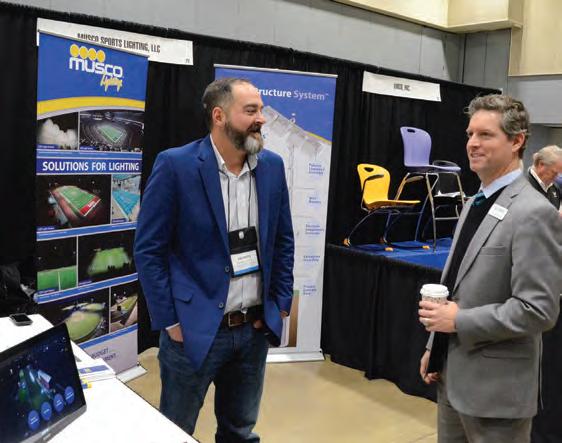
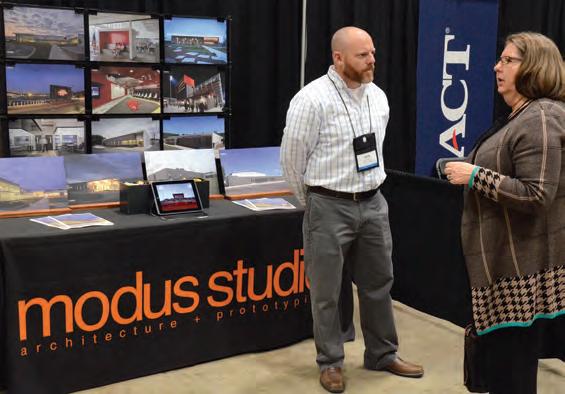
EXHIBIT HALL. Top left, Travis Riggs, right, Bentonville School Board president, talks with Paul Hively with Nabholz. Below right, Crow Construction and Paving’s Morgan Zimmerman, left, speaks with a conference attendee. Middle left, Jeremy Lemons with Musco Lighting, left, talks with Shane Pennington of Educational Benefits, Inc. Middle right, Rob Guthrie, left, and Ryan Boswell with Entegrity talk with Talitha Hardin, president of the Searcy County School Board. Bottom left, Josh Siebert with modus studio speaks with Judy Green, Valley Springs superintendent. Bottom right, James Baker, Osceola School Board president, left, speaks with Brian Jones with the Arkansas Department of Emergency Management’s Federal Surplus Property Division.

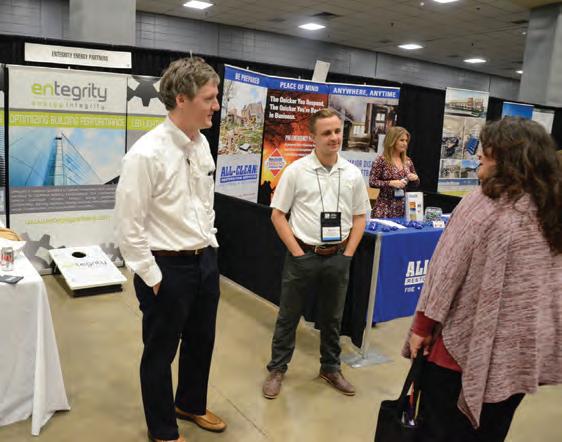
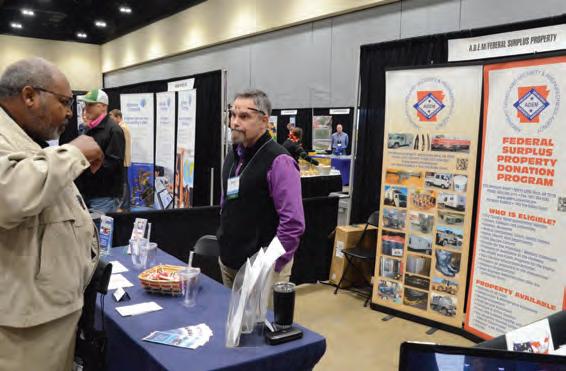
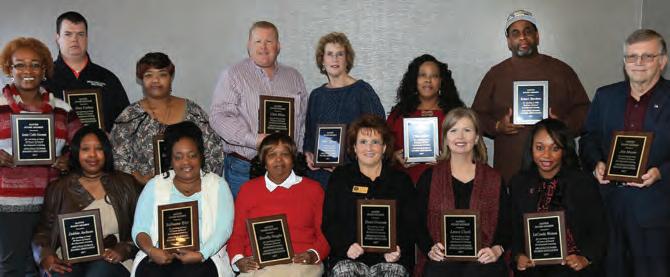
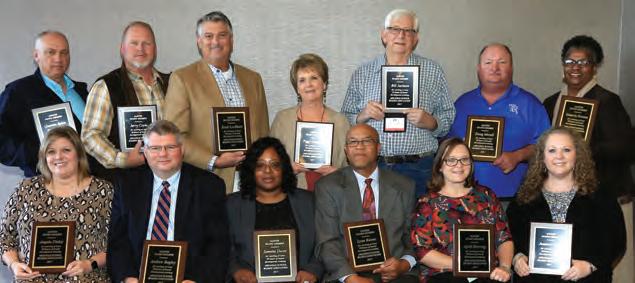
Continued from page 19
no while Elliott said generally not, but there should be some process within those bodies for removal for egregious misbehavior. English agreed with Elliott that some process is needed.
The legislators were asked whether public schools are adequately funded and whether the Public School Fund should receive annual revenue increases to keep up with inflation. Elliott said a “grand-canyon”-sized disparity exists across the state among school districts. English said it’s time to study how money is being spent across districts and that the state’s funding matrix hasn’t changed even as needs have changed. Legislators provide funding but can’t determine how the money is being spent, she said. Sturch said the funding formula is not a spending plan and that school districts spend different amounts for different needs. However, he said there should be more verification of how money is being spent to meet needs.
Earlier, the gavel was ceremoniously passed from the past-president, Bryant School Board member Sandra Porter, to the new president, Debbie Ugbade of the
MASTER AWARD WINNERS. At left. the Master Award goes to individual board members who earn 50 hours of boardsmanship credit. Pictured are, bottom row, Debbie Jackson, Hamburg; SaShunna Tyler, Clarendon; Dorothy Vaughn, Mineral Springs-Saratoga; Dana Greeson, Fountain Lake; Laura Clark, Blevins; and LaConda Watson, Jacksonville-North Pulaski. Back row, Annie Cobb-Norman, Forrest City; Joey Cathy, Warren; Dianne Robinson, Emerson-TaylorBradley; Clint Wiles, Highland; Julea Garner, Highland; Pam Holder, Marvell-Elaine; Robert Hawkins, Mineral Springs-Saratoga; and Jim Moore, Jacksonville-North Pulaski. Photo by LifeTouch
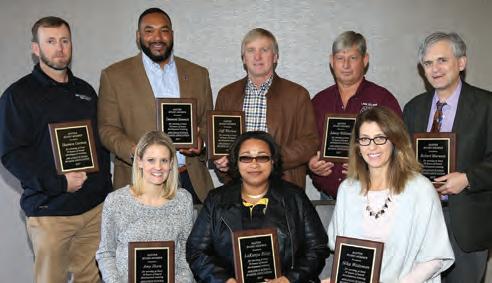
Hot Springs School Board. Rosa Bowman was elected secretary-treasurer by acclimation.
Dr. Tony Prothro, ASBA’s executive director, reported that 100 percent of Arkansas’ school boards are members of the association, and that large majori-
ties participate in its various programs. Likewise, ASBA’s annual offerings attracted participants from across the state. More than 700 school board members and administrators attended fall regional meetings.
Continued on page 23


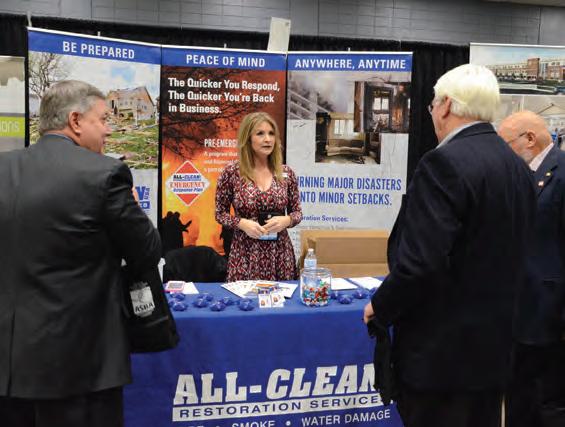
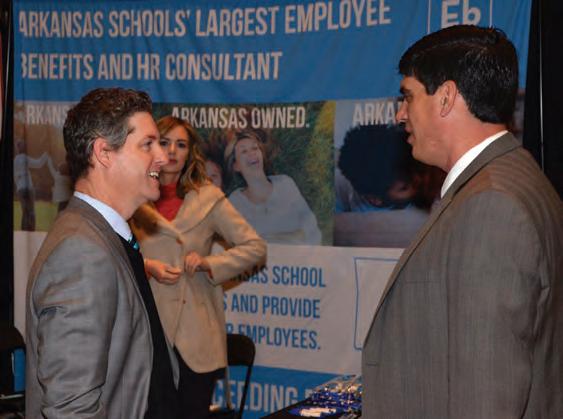


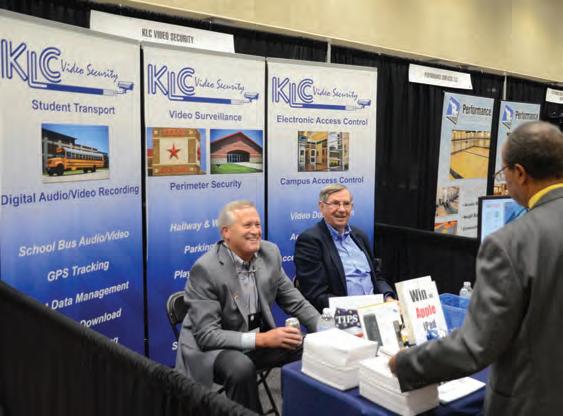
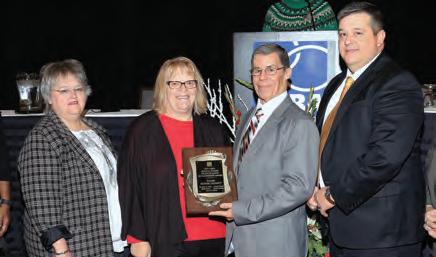

EXCELLENT SCHOOL BOARDS. The Salem and Mountain Home School Boards received this year’s ASBA School Board of Excellence in Leadership awards. Pictured at left are members of the Salem School Board. From left are Karen Coffman, Wanda Koelling, Dr. Guy Smith, president, and Barry Abney. Not pictured is Burton Yarnell. At right are members of the Mountain Home School Board. Pictured are, from left, Neal Pendergrass, president; Jason Schmeski, Barbara Horton, Dan Smakal, Lisa House, Superintendent Jake Long, and Arnold Knox. Not pictured is Bill Wehmeyer. Photos by LifeTouch
Continued from page 21
Attendees could choose between four early bird workshops and 34 breakout sessions.
Among the breakouts was a presentation by the Bentonville School District about creating a district’s brand led by Leslie Wright, the district’s communications director, and school board members Joe Quinn and Matt Burgess. Wright previously was Walmart’s senior manager for national media relations. Quinn is a longtime news anchor and was then senior public affairs director at Walmart. Matt Burgess is an associate general counsel for the retailer.
School districts must have a message that they constantly communicate, the presenters said. Quinn reminded attendees that patrons and parents don’t have as much information about school issues as board members do and often don’t pay attention to issues until they have become hot topics. He’s developed an “elevator speech” – something that could be said to a patron during the length of an elevator ride – that emphasizes the district has 125 students with ACT scores of 32 or better and that scores have improved year over year. School supporters should explain both what test scores are and what they should be. The district publishes detailed annual reports with each school’s test scores, demographics and other information so parents can compare schools with each other and nationally. That creates accountability and, as a result, trust. Wright encouraged attendees to contact people who spread false information online personally and offer correct information. Ideally, they’ll post a correction. But if you engage them online,
she said, the conversation will snowball. Quinn said a Walmart CEO had 10 rules of business, and one of them was, “You learn a lot from your enemies.”
“Sitting down with the community person who doesn’t like you, you’re probably going to get some honesty,” he said. “And you know what? There’s going to be probably a grain of truth in what that person is saying.”
Meanwhile, the Mountain Home School District presented a breakout session about its Bridges program, which organizes the district’s efforts on behalf of underprivileged students. Jill Czanstkowski, Bridges facilitator, and school board members Neal Pendergrass, Jason Schmeski and Lisa House said teachers identify needs and then quietly meet them without labeling the students. Because many students don’t publicize their problems, districts must reach out to them. Unmet problems can affect self-esteem, and self-esteem can affect learning.
“We want to do this without judgment,” Czanstkowski said. “We are all one decision, one event from needing someone to help us.”
With just $5,000 in school funds and some space in a library wing, the district is able to leverage its resources with those offered by church and community groups and local volunteers and patrons. Czanstkowski emphasized that there’s no need for districts to reinvent the wheel when so many others have more expertise. The food bank, for example, can do a much better job of helping hungry students than the school district can. A local dentist offers dental care, a Christian clinic offers sports physicals, and a plumber donated his labor to
repair a hot water heater for a student who had taken showers at school for two years. A car battery was provided for a student at the alternative school, while rent money was provided for a high school senior living on her own. Community members drop off costumes at the office for low-income students to wear at the fall festival, while Valentine’s Day supplies are provided students who can’t afford their own.
“I’m a hub, and I give more information and make more connections than I do give money,” Czanstkowski said.

By Steve Brawner Editor
Katie Daniel has been involved in schools a long time. She was first elected to the Arkansas City School Board in 1988. Thirty years later, she’s still serving on the McGehee School Board after the two districts consolidated. It now serves children from McGehee, Arkansas City, Tillar and Watson. Before her election, she had already worked almost two decades as the McGehee Junior High principal’s secretary. That job began in 1971 and continued until 1996, when she had to resign for health reasons.
For Daniel, school board service isn’t primarily about budgets, buildings and buses, but about love. Report Card sat down with her Jan. 25 in the McGehee Junior High library to talk about why loving students is so important.
Why did you run for the Arkansas City School Board?
“Well, I really love kids. I only had two. But I ran and I got it, and I just loved it. We had ups and downs, but we overcame our situation. Whatever situation it might have been, we worked it out. Since I’ve been on the board the 30 years, our board has mostly been unanimous in making our decisions because we have our motto, ‘Do unto others as you would have them to do unto you.’ Schools do have rules, but sometimes you have to really make a decision maybe not agreeable to the superintendent.”
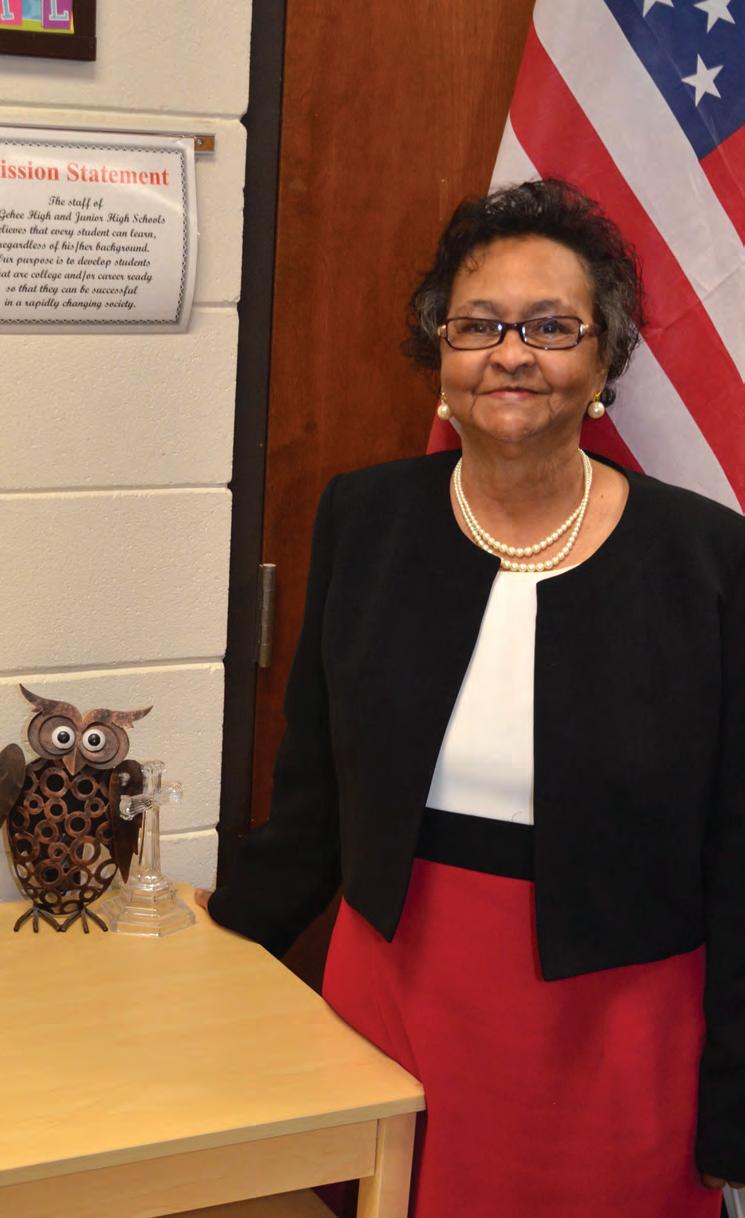
When have you had to make a decision that’s contrary to the superintendent?
“With this superintendent? Just a couple of months ago, a young man had
to come before the board because of something … He was supposed to be suspended for the whole year. We don’t want kids out on the streets, and the decision that we made is because it
wasn’t devastating, and it wasn’t really a harm to anyone. … He made a mistake, but it wasn’t that bad a mistake to suspend him for the whole year.”
How do you smooth over tensions with the superintendent when that happens?
“We go in executive session and discuss it, and he agreed with us.”
You were on the Arkansas City School Board when you consolidated with McGehee. How did you make that happen?
“It was a really hard decision. We have a seven-member board, and really we had to go before the state because I voted against us consolidating with McGehee. And why I did that was because the patrons, they believed in me, and I think I would have let them down if I had agreed to consolidate, although I could not do anything about it because the state had to make the decision.”
What was the board vote that day?
“Six to one.”
You were the lone vote against consolidation.
“Yes. Because the patrons believed in me, and I stood up for my community.”
Well, was that difficult being the one vote against?
“It wasn’t because I felt like I did the best thing. … We didn’t have enough students. You had to have at least 350 students, and we had about 200.”
Ah. Well, you probably knew you were going to lose that anyway, didn’t you?
“Yes, I did, but I just felt like that was the right thing to do.”
Were your patrons telling you to vote against it?
“No. But they were really proud of me after the fact because they did not know that I had voted that way.”
Is that how you felt like they wanted it; they wanted to keep it a separate school?
“Oh, of course. Arkansas City is very small, but we’ve had some students to excel well. We’ve had doctors, physical therapists, nurses. We had a really good school.”
What do you do after you’re the lone vote against something? Is everything OK?
“Yes. It went just fine. No one had a problem with that. They understood where I was coming from.”
How did you help make the consolidation happen smoothly? Or did you play a part?
“We just fell in. At first it was kind of hard because they had to bus the kids at least 10, 11 miles. That was my really main concern because we had little ones, but after we consolidated, we haven’t had any problems out of the kids. They’re really good kids. McGehee kids are, too.”
So you had been a principal’s secretary at McGehee Junior High School for 24 years. How did those experiences there help you after you started serving as a school board member?

“Oh, tremendously because I knew exactly what was going on in the junior high, because that’s where I worked. I mean, I knew about all the programs. At one time I was a janitor, a nurse. I was it all because I took my job seriously. When kids came in sick, I pampered them, and I would call their mother if it was necessary. They’d throw up; I’d go get me a mop and mop it up; call their parents to come and pick them up.
“If a student got in trouble, well, I would have to talk to them first before the principal did because they came to my office, and I would talk to them just like they were my children. And they understood that, and they would try to do right. Once they got in trouble, I’d say, ‘Well, I’m not going to tell your mother this time, but if you do it again, I’ll tell your mother – this, and what you did before.’
Every child or student has a right to an environmentally safe and healthy learning environment. School districts should not bear the financial burden of construction defects. Trammell Piazza represents a number of commercial clients and governmental entities regarding construction claims. We will arrange for a free expert evaluation and assessment of your building. We are an experienced contingent fee firm willing to share in the risk with you. There is no financial commitment for the school district unless a recovery is obtained on your behalf.
M. CHAD TRAMMELL
IN HISTORIC DOWNTOWN TEXARKANA 418 N. STATE LINE AVE., TEXARKANA, AR 71854 OFFICE: 870-779-1860
MELODY H. PIAZZA
IN THE HEIGHTS OF LITTLE ROCK, THE PROSPECT BUILDING
“They’d say, ‘OK. Don’t tell them, Miss Katie.’ (Laughs.) I mean, I just loved the kids, and they loved me.” AV Peer Review Rated 5.0 / 5.0 Martindale-Hubbell
Continued on next page
1501 N. UNIVERSITY, STE. 350, LITTLE ROCK, AR 72207 OFFICE: 501-371-9903
“ ”
If a student got in trouble, well, I would have to talk to them first before the principal did because they came to my office, and I would talk to them just like they were my children. And they understood that, and they would try to do right. Once they got in trouble, I’d say, ‘Well, I’m not going to tell your mother this time, but if you do it again, I’ll tell your mother –this, and what you did before.’
Did the principal know that you were giving them the “mother talk” beforehand?
Beau Rivage Resort & Casino
Biloxi
(Laughs) “It wasn’t really part of the process. I mean, I just felt like all these kids were mine, and I wanted the kids to be, I won’t say ‘perfect,’ but I just didn’t want them to do anything wrong. I just wanted them to be ... sweet. (Laughs)”
How did you use that experience of being secretary once you got on the school board?
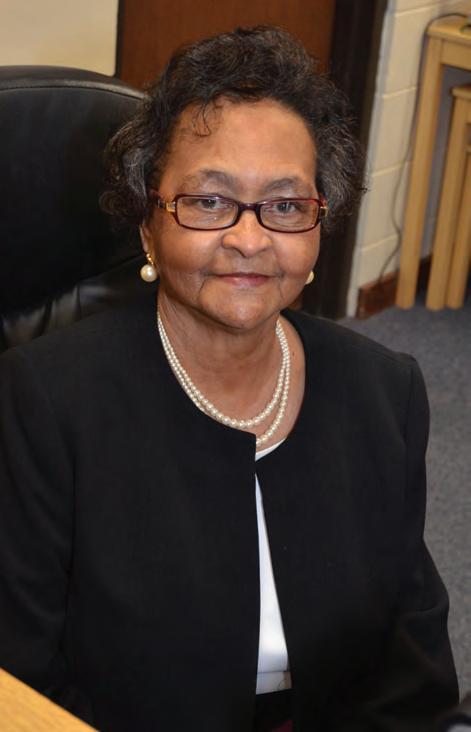
“Of being a secretary? Well, I knew what the student was to do, how their parents wanted them to act at school, and I gained a great relationship with the parents.”

Beau Rivage Resort & Casino Biloxi
You hired a superintendent this past year. What were you looking for?
“We were looking for someone to first love our children – put the children first. I wasn’t in on the interview. We used the superintendent search firm. I was sick during that time that we had interviews, so we did this superintendent search, and I was in on the last interview. But Mr. (Chris) Ferrell, all the teachers loved him. He had to meet with the teachers and parents, and everybody just fell in love with him, and that’s how we made our decision.”
It sounds like that while academic excellence and financial expertise were important, it started out with he had to love the children.
“That’s right. That had to be the number one thing with me. Yes. Because if you don’t really show an interest in the kids, then I don’t think you should be their leader.
Nationally Syndicated
Cartoonist, Marshall Ramsey, as Keynote Speaker










have appeared in The New York Times, USA Today, and The (Jackson, of several successful books including two cartoon collec�ons — the and Wine, and the deligh�ul children’s book, Banjo’s Dream. He’s also program, Now You’re Talking with Marshall Ramsey on Mississippi

Hosted by:


I guess what school board members have to watch out for is that they can get so caught up in business matters that they forget about students sometimes.
“Oh, no. I’ve never forgotten about the students. Never. The kids are what makes me happy. The kids always come first.”
Nationally Syndicated Cartoonist, Marshall Ramsey, as Keynote Speaker
www.msbaonline.org
�o make hotel reserva�ons at the Beau Rivage, the conference hotel, call 888.383.7037 or 228-3867111. If you register before June 27, the rates are: �1���night � �12 resort fee and 12� ta�. Men�on that you are a�ending the Southern Region Leadership Conference to get the conference rate
nown for his award-winning cartoons, entertaining radio program, and engaging short stories, Marshall Ramsey is a two-�me Pulitzer Finalist (2002 and 2006). His editorial cartoons are syndicated na�onally by Creators Syndicate and have appeared in The New York Times, USA Today, and The (Jackson, MS) Clarion-Ledger. He is the author of several successful books including two cartoon collec�ons — the short story collec�on, Fried Chicken and Wine, and the deligh�ul children’s book, Banjo’s Dream. He’s also the host of the weekly statewide radio program, Now You’re Talking with Marshall Ramsey on Mississippi Public Broadcas�ng.
You were a school board member at the same time you had some health issues, and then your husband was diagnosed with cancer and died a few years later. How do you do school board service when you’re facing personal challenges?
�o make hotel reserva�ons at the Beau Rivage, the conference hotel, call 888.383.7037 or 228-3867111. If you register before June 27, the rates are: �1���night � �12 resort fee and 12� ta�. Men�on that you are a�ending the Southern Region Leadership Conference to get the conference rate
“I didn’t miss any meetings. We have meetings once a month, and I would meet. When we would have staff development in other places, I was allowed to go because I had a wonderful daughter that stepped up in my place while I was gone.”
“You have to be around to know this superintendent. He is like lightning. He’s here, there, everywhere, and he hugs the children, and I love that. I mean, that just melts my heart. He makes no difference in any of them. He’s a great man.”
You think you have strong community support here?
“Definitely. … The parents, they do special things for the district – like teacher appreciation, they bring food every day for a week. You know, different sets of parents do things like that. We just have a really good strong community that sticks together. When we passed the millage, there were over 2,000 votes for and about 200 against.”
Editor’s note: Executive Session is a regular Report Card feature. Questions and answers are edited for length and clarity.
Key: Measures developed by state; will consider many factors. Also, no more 100 percent goal
The state’s Every Student Succeeds Act plan will measure school performance under a less punitive and much broader set of standards than was done under the “top-down, compliance-driven” No Child Left Behind, Education Commissioner Johnny Key said.
In an interview January 17, Key said NCLB measured achievement by only one standard: test scores. ESSA includes many measurements, including ACT Aspire scores, four-year and five-year graduation rates, grade point averages, student absenteeism, Advanced Placement scores, concurrent credit, and career education. Gov. Asa Hutchinson asked that computer science participation be considered, so it was.
While NCLB didn’t give states a choice in their standards, ESSA’s were created by the states themselves. Department of Education officials met with stakeholders statewide regarding topics ranging from English language learners, accountability, and comprehensive school improvement.
Stakeholders wanted student growth to be a primary measurement. Under Arkansas’ ESSA plan, improvement is given a weighting as high as 50 percent of the overall school index at the elementary and middle school levels.
No more 100 percent proficiency
Gone is NCLB’s unachievable requirement that 100 percent of students be proficient regardless of their intellectual capabilities or English skills. Despite all of Arkansas’ efforts, its students had come nowhere near that – achieving, for example, only 50.35 percent proficiency in English language arts and 57.8 percent in math among K-5 students. Under ESSA, schools have 12 years to achieve 80 percent proficiency in math and literacy.
Like the measurements, interventions were created by the state, not the federal level as under NCLB. They will be administered at the district level rather than the school level.
Under NCLB, schools were assigned an adequate yearly progress score, and if they didn’t meet the mark, they could be brought before the State Board of Education and sanctioned. So-called “focus” and “priority” groups weren’t eligible for some funding streams.
Instead of being measured annually, schools will be measured at three-year checkpoints, giving districts time to track all students and subgroups. Unlike NCLB, ESSA won’t be used to place schools under academic distress.
“Those used to be trigger points for getting you in trouble, and now they’re not. … The goals are used as a tool to help you get better,” Key said. “Before it was used as a tool of punishment.”
Instead of “focus” and “priority” schools, schools will be deemed in need of comprehensive and targeted support. ESSA requires the state to calculate the lowest performing 5 percent of schools as those in need of comprehensive support and improvement, which means about 40 schools will receive extra
KEY says if schools are following through on their plans, “the likelihood of being very prescriptive is minimal.”
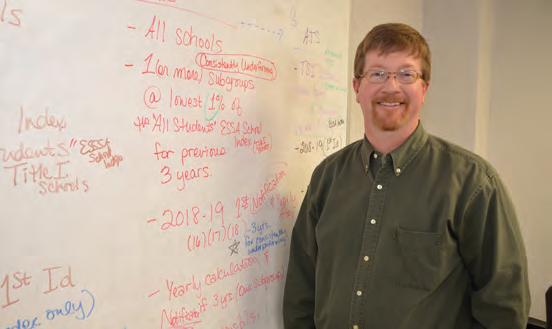
attention. Schools with subgroups performing at 1 percent for three consecutive years also will receive targeted help.
Key said the focus will be on positive direction, not punishment.
“As long as the school district, they’re developing their plans, they’re following their plans, they are interacting with us in a positive way as we provide resources and assistance to them, then the likelihood of being very prescriptive is minimal,” he said.
The processes under ESSA will generate more data for school districts and boards to measure their academic deficiencies and determine how they will target their resources. Board members will be able to compare their district’s performance with others. Feedback will be available for many different groups of students.
“It’s the difference in data being used like a hammer, or is this data being used like a flashlight?” said Ivy Pfeffer, deputy commissioner. “We want that data to be a flashlight. We want it to show you where you need to put your efforts, your focus, your attention, to help make improvements.”


Brandon Wall, the manager of Nabholz’s service department in Fort Smith, recently talked to ninth grade students at a school career fair – 238 ninth graders, to be exact.
When Wall asked how many had ever considered working in the construction industry, only seven hands went up.
With the economy surpassing pre-recession levels and a shortage of employees in the workforce, the opportunities couldn’t be better for a career in the construction industry. Those other 231 students who were skeptical about construction might not have considered all of the job paths the industry offers, including these 10 jobs that don’t require a hammer or boots: accounting; marketing; risk management and legal services; health and wellness; virtual design and modeling; information technology; business development; human resources; drone mapping and surveying; and quality and safety management.
Call 1.877.NABHOLZ or go to www. nabholz.com for more information about how Nabholz can put its expertise in these areas to work for your district.
Stephens: Despite law, can’t change use of facilities funded by tax-exempt bonds
In 2017, the Arkansas State Legislature enacted Act 542, which enables charter school operators to purchase or lease “unused” or “underutilized” public school district buildings owned by school districts.
While the new law allows for these types of acquisitions, please keep in mind that changes in a public facility
use could jeopardize the tax-exempt status of a district’s bonded indebtedness, and thus open the district to potential lawsuits from the purchasers of those bonds. When a district issues tax-exempt bonds, it agrees to comply with certain private business restrictions as long as the bonds are outstanding, which can be for as long as 30 to 35 years. At the time of this writing, legislators were working with drafters of the proposed new rules to add specificity to address this possible issue.
If you have questions about whether a conflict may exist related to your outstanding bonds and the sale of a schoolowned property, please contact Melissa Walsh of Stephens Public Finance at 800.643.9691.

Entegrity recently was selected by three Arkansas school districts to implement LED lighting retrofit projects.
The Greenland School District saved $53,200 in anticipated annual energy and maintenance costs. Johnson County’s Westside School District saved $30,624.97, while Concord School District saved more than $30,000.
For more information about Entegrity’s LED lighting services, contact the company today at 800.700.1414 or visit www.entegritypartners.com.
ucts through them because they have state-accepted pricing and completed bidding for us. Instead of it taking three weeks for bids, we save three weeks. So, if we need to buy equipment, it moves up our delivery day by three weeks.”
For more information about TIPS, contact Mickey McFatridge at 870.926.9250 or at mickey.mcfatridge@ tips-usa.com.
BancorpSouth Insurance Services, Inc. has changed its name to BXS Insurance as of Jan. 1, BancorpSouth Bank announced in a press release.
The company’s products include school board legal liability insurance, employment practices liability insurance, and outside of Arkansas general liability coverage.
BXS Insurance (bxsi.com), is licensed in all 50 states and is the nation’s 38th largest insurance firm based on the latest rankings by Business Insurance.
For a quote comparison or coverage consultation, contact Bill Birch at 800.358.7741 or at bill.birch@bxsi.com.

Crafton Tull designs Rogers school, and road leading to it
The TIPS program helps school districts speed up their bidding process, according to an article published in the Jonesboro Sun newspaper Feb. 5.
Nettleton Superintendent James Dunivan was quoted saying, “We use TIPS as often as we can. We buy a lot of prod-
Rogers Public Schools held a groundbreaking ceremony Dec. 12 at the site of the new Elementary #16. As a subconsultant to Hight Jackson Associates, Crafton Tull provided the civil engineering, surveying, and landscape architecture on this world-class facility located just off the Razorback Greenway. The City of Rogers is partnering with the school district to make improvements to Garrett Road before the school opens
in 2019, and Crafton Tull is designing those road improvements. The architectural/engineering team for this school also designed Janie Darr Elementary, the district’s 15th elementary school, and due to phenomenal growth in the region it has already reached its 700-student capacity.
For more information about Crafton Tull, go to www.craftontull.com or call 479.636.4838.

Rogers architecture firm Hight Jackson Associates recently designed the interior remodel of the 17,700-square-foot Rogers School District Career Center. Construction was completed by Flintco last summer.
The Career Center includes a machine shop and classroom, auto garage and classroom, tool shop, welding area, carpentry wood shop, and agri classroom as well as offices and storage space for the district’s career programs.
For more information about Hight Jackson, call 479.464.4965 or go to www.hjarch.com.
Thinking about LED sports lighting? Then it’s important to understand that all LED lighting does not deliver the same results.
Musco has applied more than 40 years of research and experience to take advantage of LED’s unique characteristics. At smaller facilities like Corning High School, or larger ones such as Arkansas High School in Texarkana,
Musco’s TLC for LED™ technology achieves the best field lighting, eliminates glare, and preserves darkness around the field.
To see TLC for LED in action, contact Jeremy Lemons at 501.249.8056 or at jeremy.lemons@musco.com.

The 133,234-square-foot project for the Pulaski County Special School District is being constructed by Baldwin & Shell.
The facility will feature 24 core classrooms, eight science classrooms with preparation stations, four art rooms, two occupational and physical therapy rooms, project labs, reading rooms, a multi-use room, and student dining along with a new kitchen. Administrative offices include a health center, guidance offices, and conference and media rooms. Also included are a new central energy plant, student plaza and 120 additional parking spaces.
Future buildings will include a performing arts center, indoor practice facility and multi-purpose arena.
Beau Rivage Resort & Casino Biloxi
The Melbourne School District is working with modus studio on the design of a new central office facility. This 3,870-square-foot building will be located near the school’s main entrance, effectively creating a new campus gateway for students and parents. The building will accommodate office space for the superintendent, accounting staff, secretary, and information technology staff, and includes server rooms and other auxiliary spaces for daily campus operations. Also included in the design is a formal school board meeting room with a direct view of campus. For more information about modus studio, go to www.modusstudio.com or call 479.455.5577.
Hosted by:
The district’s voters last June voted to extend a tax of 14.8 mills for 13 years to pay for a $66 million bond issue to construct the school.
For more information about Baldwin & Shell, go to www.baldwinshell.com or call 501.374.8677.

Beau Rivage Resort & Casino Biloxi
FEATURING
Nationally Syndicated Cartoonist, Marshall Ramsey, as Keynote Speaker



nown for his award-winning cartoons, entertaining radio program, and engaging short




Marshall Ramsey is a two-�me Pulitzer Finalist (2002 and 2006). His editorial cartoons are syndicated na�onally by Creators Syndicate and have appeared in The New York


and The (Jackson, MS) Clarion-Ledger. He is the author of several successful books including two


Construction of Sylvan Hills High School in Sherwood is well underway and should be completed in July 2019.

Hosted by:

collec�ons — the short story collec�on, Fried Chicken and Wine, and the deligh�ul children’s book, Banjo’s Dream. He’s also the host of the weekly statewide radio program, Now You’re Talking with Marshall Ramsey on Mississippi Public Broadcas�ng.

FEATURING
Nationally Syndicated Cartoonist, Marshall Ramsey, as Keynote Speaker
�o make hotel reserva�ons at the Beau Rivage, the conference hotel, call 888.383.7037 or 228-3867111. If you register before June 27, the rates are: �1���night � �12 resort fee and 12� ta�. Men�on that you are a�ending the Southern Region Leadership Conference to get the conference rate.
nown for his award-winning cartoons, entertaining radio program, shall Ramsey is a two-�me Pulitzer Finalist (2002 and 2006). His editorial �onally by Creators Syndicate and have appeared in The New York MS) Clarion-Ledger. He is the author of several successful books including short story collec�on, Fried Chicken and Wine, and the deligh�ul children’s the host of the weekly statewide radio program, Now You’re Talking with Public Broadcas�ng.
HOTEL
�o make hotel conference hotel, 7111. If you register �1���night � �12 that you are a� ship Conference
Premier Partners Contact Phone Email Website
AETN
BXS Insurance
Educational Benefits, Inc.
First Security Beardsley Public Finance
Fleming Electric
Homeland Safety Systems, Inc.
Lifetouch National School Studios, Inc.
McPherson & Jacobson, LLC
Pro Benefits Group, Inc.
Stephens Inc.
Harold Frazier
Bill Birch
501.682.5074 hfrazier@aetn.org ideas.aetn.org
501.614.1170 bill.birch@bxsi.com www.bxsi.com
Derek Owens 501.212.8926 derek@jtsfs.com ebiteam.com
Scott Beardsley
Chad Thornton
501.978.6392 scott@fsbeardsley.com www.fsbeardsley.com
501.551.6322 cthornton@fleminc.com www.fleminc.com
Mike Elliott 318.221.8062 mike@hssems.com homelandsafetysystems.com
Patrick Hand 501.664.5550 phand@lifetouch.com www.lifetouch.com
Thomas Jacobson888.375.4814 mail@macnjake.com www.macnjake.com
Gary Kandlbinder501.321.0457 pbfsi@sbcglobal.net pbfsi.com
Jason Holsclaw 501.377.2474 jason.holsclaw@stephens.com www.stephens.com
The Interlocal Purchasing System (TIPS) Mickey McFatridge 870.926.9250 mickey.mcfatridge@tips-usa.com www.tips-usa.com
Exhibiting
ACE Sign Company
ACT, Inc.
ADE - Computer Science Initiative
A.D.E.M. - Federal Surplus Property
A.D.E.M. - Smart 911
All American Workwear
All-Clean USA
ASBA Workers’ Compensation
ASVAB Career Exploration Program
Baldwin & Shell Construction Company
Mark Bridges
Brad Patterson
501.909.9173 Mark.Bridges@acesigncompany.com www.acesigncompany.com
501.554.6157 brad.patterson@act.org www.act.org
Anthony Owen 501.682.3386 anthony.owen@arkansas.govwww.arkansased.gov
Brian Jones 501.835.3111 brian.jones@adem.arkansas.govwww.adem.arkansas.gov
Amy Hyman 501.683.7883 Amy.Hyman@adem.arkansas.govwww.adem.arkansas.gov
Tracy Dudek 855.909.6201 tracy@allamericanworkwear.cowww.allamericanworkwear.co
Lisa Graham 870.972.1922 Lgraham@allcleanusa.com www.allcleanusa.com
Shannon Moore 501.492.4805 shannon@arsba.org arsba.org
Megan McMillin 501.666.6377 megan.o.mcmillin.civ@mail.mil www.asvabprogram.com
Scott Copas 501.374.8677 jsc@baldwinshell.com www.baldwinshell.com
C.R. Crawford Construction, LLC Phil Jones 479.251.1161 Pjones@crcrawford.com www.crcrawford.com
Capital Business Machines, Inc. Ben Higgs 501.375.1111 bhiggs@capbiz.com www.capbiz.com
Central States Bus Sales, Inc.
Chartwells
Crafton Tull
Cromwell Architects Engineers, Inc.
Mike Wingerter 501.955.2577 mikew@centralstatesbus.com www.centralstatesbus.com
Joan Thorne 214.471.0206 joanthorne@compass-usa.comwww.chartwellsk12.com
Clare Dunn 501.748.8265 clare.dunn@craftontull.com www.craftontull.com
Chris East, AIA 501.372.2900 ceast@cromwell.com www.cromwell.com
Crow Construction and Paving Morgan Zimmerman 479.264.4332 mzimmerman@crowconst.com www.crowconst.com
David H. Frieze and Associates, Inc. Paul Frieze 501.922.9704 paulfrieze7@gmail.com
Entegrity Energy Partners
Fisher Tracks, Inc.
Jackson Brown Palculict Architects
Johnson Controls, Inc.
Kinco Constructors
KLC Video Security
LinkIt!
McLemore Building Maintenance
Mid-America Sports Construction
Midwest Bus Sales, Inc.
modus studio, PLLC
Musco Sports Lighting, LLC
Nabholz Construction Company
Performance Surfaces, LLC
Pop Pop Shoppe
Powers of Arkansas
Southern Bleacher Company
SubteachUSA, an ESS Company
The PlayWell Group, Inc.
Trammell Piazza Law Firm, PLLC
Tri-State Floors
Van Horn Construction, Inc.
Virco, Inc.
Rob Guthrie 501.414.0058 rob.guthrie@entegritypartners.com www.entegritypartners.com
Victor Quiroga 515.432.3191 vquiroga@fishertracks.com www.fishertracks.com
Misty Snell 204.664.8700 misty@jbparchitects.com www.jbparchitects.com
Craig Mullins 501.306.8198 craig.e.mullins@jci.com www.johnsoncontrols.com
Clay Gordon 501.225.7606 cgordon@kinco.net www.kincoconstructors.com
Bill King 903.792.7262 billking.klc@gmail.com www.klcvideosecurity.net
Matthew Wilson 201.739.3740 matt@linkit.com www.linkit.com
David Prewitt 832.201.6027 dprewitt@mbminc.com www.mbminc.com
Brock Wilson 816.524.0010 bwilson@mid-americagolf.com www.mid-americasportsconstruction.com
Tim Toolen 479.474.2433 ttoolen@midwestbussales.com midwestbussales.com
Josh Siebert 479.455.5577 josh@modusstudio.com www.modusstudio.com
Jeremy Lemons641.673.0411 jeremy.lemons@musco.com www.musco.com
Jake Nabholz 877.622.4653 jake.nabholz@nabholz.com www.nabholz.com
Ryan McCaslin 405.463.0505 rmccaslin@performancesurfaces.com www.performancesurfaces.com
Cassidy Lavender 903.793.0209 cassidy@poppopshoppe.com www.poppopshoppe.com
Ron McCarty 501.350.4520 rmccarty@powersar.com www.powersar.com
David Norman 940.549.0733 info@southernbleacher.com www.southernbleacher.com
Hayley Zoranski 856.482.0300 HZoranski@source4teachers.comESS.com
Bruce Larison 800.726.1816 bruce@playwellgroup.com www.playwellgroup.com
Chad Trammell 501.371.9903 chad@trammellpiazza.com trammellpiazza.com
Chad Bunnell 918.343.2553 chad@tri-statefloors.com tri-statefloors.com
Leslie Foster 479.968.2514 lfoster@vanhornconstruction.com www.vanhornconstruction.com
Bruce Joyner 501.908.9461 BruceJoyner@virco.com virco.com
Witsell Evans Rasco Architects/Planners Kate Dimitrova 501.374.5300 info@werarch.com werarch.com
Wittenberg, Delony & Davidson Architects Glen Woodruff 501.376.6681 gwoodruff@wddarchitects.com www.wddarchitects.com
Cobb & Suskie, Ltd.
Freedom Roofing Solutions, Inc.
Michael Cobb 501.225.2133 mcobb@cobbandsuskie.com www.cobbandsuskie.com
Brian Kirk 501.796.2061 brian@freedomroofingsolutions.comwww.freedomroofingsolutions.com
Hight Jackson Associates, PA Liz Cox 479.464.4965 lcox@hjarch.com www.hjarch.com
NE-ARK Adjustment Company
Mike Brigance 870.838.0097 mbrig@swbell.net www.nearkadjustment.com
Raymond James David Fortenberry 501.988.5474 david.fortenberry@raymondjames.com www.raymondjames.com
Vanguard Modular Building Systems, LLC
Mark Meyers 504.201.4006 mmeyers@vanguardmodular.comwww.VanguardModular.com
Employing a superintendent is much like finding a mate: There’s dating, marriage and, unfortunately, sometimes divorce.
The dating phase involves the search process and job offer. When searching for a superintendent, the first step is to determine if you will stay in house (the high school sweetheart) or open the process to any qualified candidate.
Marriages have a better chance to succeed when both partners know what they need and seek partners with those qualities. The same is true for hiring a superintendent. Create a rubric that spells out your priorities, and clearly explain it to the applicants. Doing so professionalizes the process, streamlines your deliberation, helps ensure you hire the candidate you really need, and protects your district against discrimination claims.
Interviews can be done in executive session and should involve only the board. While the current superintendent legally can be present, it looks bad because it’s the board that must take responsibility for the hire. Create questions prior to the interview based on your rubric, and don’t veer off course. Don’t ask about children, pregnancy, age, religion, credit ratings, or even whether the applicant has been convicted of a crime, because any of those can

by Jay Bequette ASBA General Counsel
lead to a discrimination case. Arkansas’ certification process will probably take care of that last one.
Eventually, it’s time to propose a long-lasting, committed relationship with the applicant. The board president will determine the board’s consensus choice and terms of the agreement during executive session. Contact the applicant and make the offer. Only one board member should communicate with the applicants, and no one should be discussing the process with the media.
The contract is sort of like your marriage vow. It spells out compensation, duties, professional development requirements, and other terms so all sides’ expectations are clear and can be met. ASBA has a model contract if you need it.
The contract should clearly state that the board will evaluate the superinten-




dent annually. The evaluations should describe the superintendent’s expected relationship with the board, management abilities, relationship with the community, fiscal management, personal and professional attitude, public relations skills, and relationships with staff. Evaluations are important. It’s hard to fire someone if you haven’t told them what they’re doing wrong.
Just as some marriage partners split before death do they part, some superintendents can’t be allowed to stay until their contract ends. If that happens, the district probably will owe the superintendent alimony. The board is obligated to pay the remainder of the contract but can negotiate a resignation. Superintendents will take less money to resign because it increases the chances they’ll find a job elsewhere. The superintendent can immediately resign and receive a buyout of a (never tax-free) lump sum, immediately resign and receive monthly payments, or finish the year and receive a lump sum for whatever is remaining on the contract.
No one wants any of that to happen. Breaking up is hard to do, whether it’s a marriage or a board-superintendent relationship. In both cases, the best way to ensure success is to search well, set clear expectations, and regularly evaluate as time passes.

Disasters come in all shapes and sizes, but one common thread connects them all: afterward, you want to get your life back on track as fast as possible. At ALL-CLEAN USA, we understand that when we’re restoring your property, we’re restoring your life. That’s why we’re available 24 hours a day, 365 days a year – working quickly and stopping at nothing short of making everything like new. See how at AllCleanUSA.com or by calling 866-360-3473
Springhill Elementary
Greenbrier School District
Greenbrier, Arkansas

Secure drop-off areas designed for only good mornings.
At Springhill Elementary School, one of our client’s main goals was to create a secure learning environment. A big part of that was creating safe and secure entrances and exits. We helped our clients achieve a design that welcomes students and gives parents peace of mind.
The priorities that matter to you matter to us.
